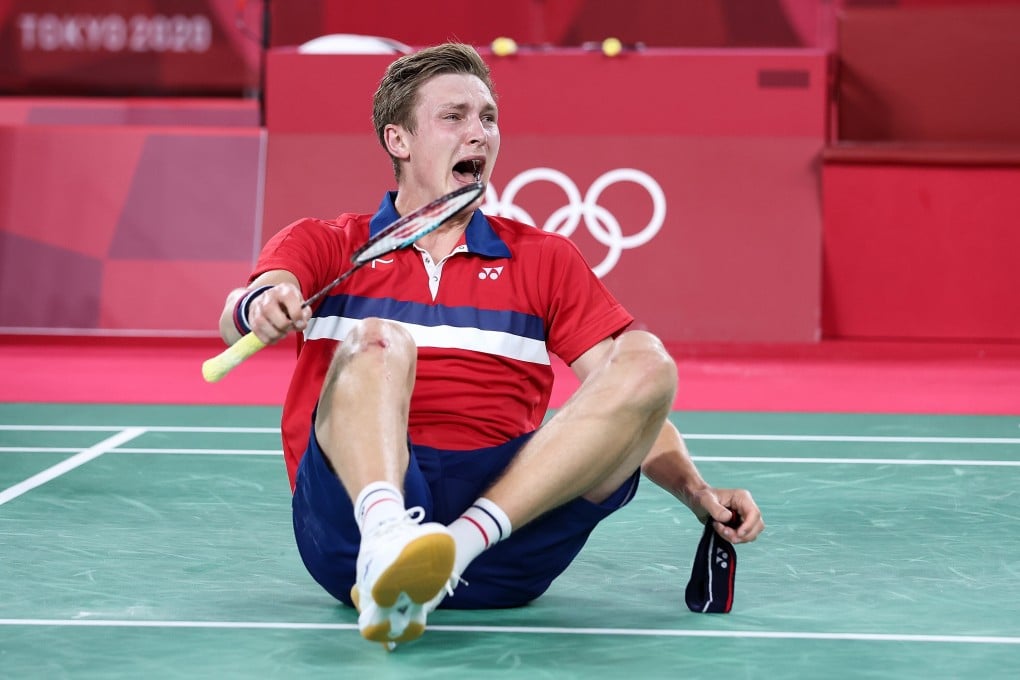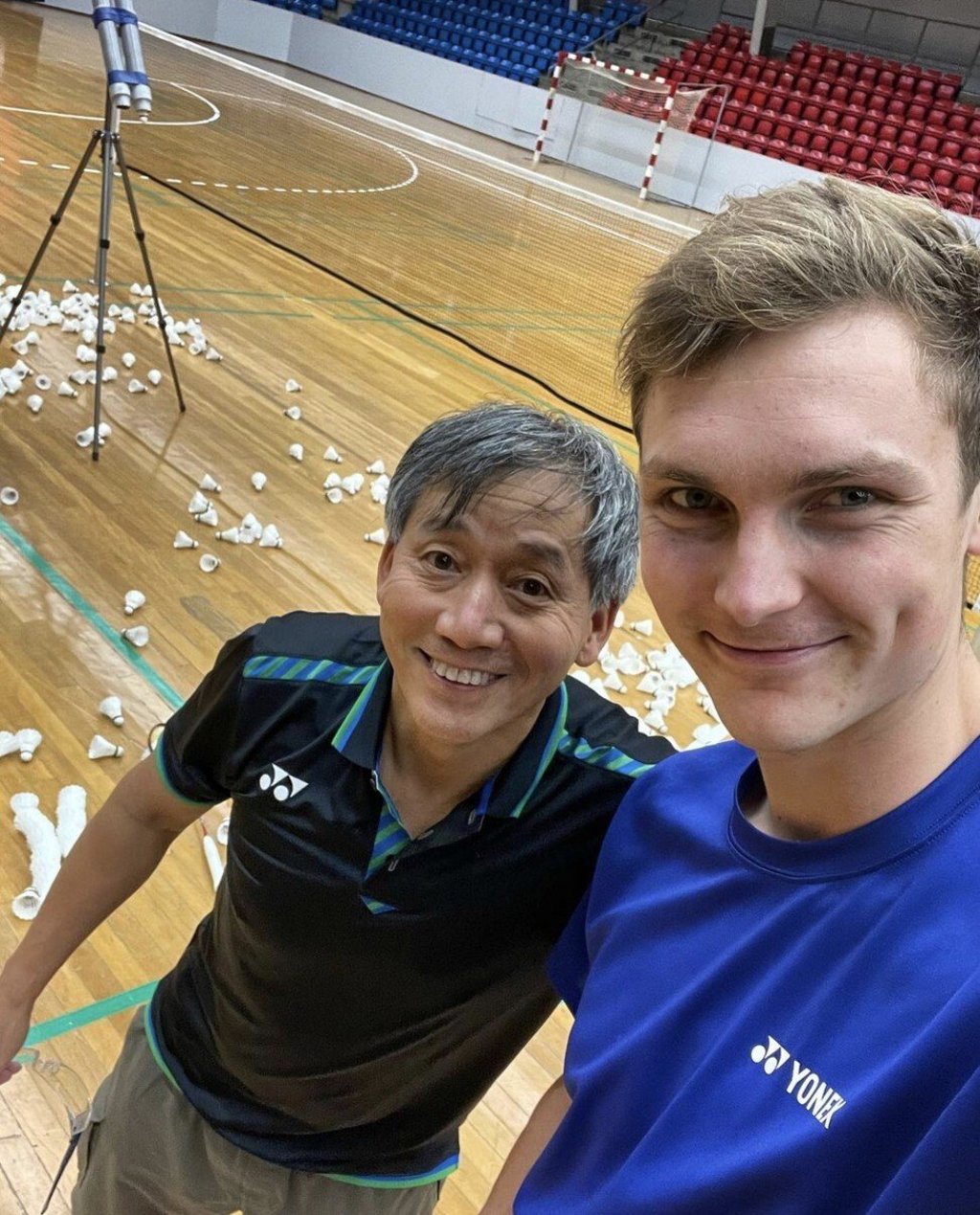Advertisement
Tokyo Olympics: how the Danish ‘golden dragon’ is using Mandarin to bridge a gap with his badminton fans
- The gold-medal-winning badminton player has been learning Mandarin for seven years, and is now proficient in the language
- His teacher says he approaches the language with the same work ethic as his badminton
Reading Time:3 minutes
Why you can trust SCMP
17

In early August in Denmark, Zhang Lianying’s WeChat notifications pinged, indicating that he had received a voice message. When he listened on his phone, he heard a recording in Mandarin that said simply: “I don’t know what to say. Thank you very much.”
The note of gratitude came from Viktor Axelsen, a Danish badminton player who, minutes before, had just won his first Olympics gold medal by beating defending champion Chen Long in the men’s singles tournament.
Zhang is Axelsen’s technical coach, and a significant part of their relationship is that they communicate in Mandarin, which Zhang said helps keep Axelsen on his toes.
Advertisement

The coach, who hails from Tianjin municipality in northern China, was invited to Denmark 32 years ago to train Jon Holst Christensen, who competed in the 1996 Atlanta Olympics, and has since trained several top Danish players.
Advertisement
Zhang has spent so much time in Denmark that he believes his Chinese has become rusty.
Advertisement
Select Voice
Select Speed
1.00x